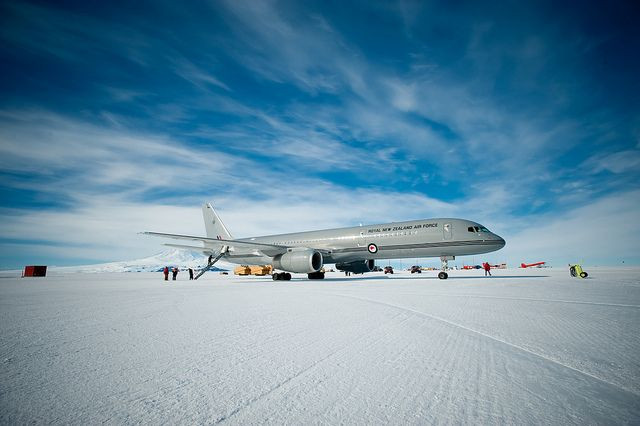Dangerous Medical Rescue Successfully Evacuates American Citizen from Antarctica

A dramatic medical evacuation took place when an Australian airplane airlifted an American citizen to safety from Antarctica. Though the United States' National Science Foundation have been vague on details, it does appear that the person developed a condition that was more than they could handle at the portable medical facility. They could not say whether the condition was life-threatening.
The rescue was particularly dangerous because Antarctica is currently in the midst of its six-month winter. During Antarctica's winter, the sky is dark for the entirety of the six months, darker even than the usual cover of night. Temperatures upon landing were reportedly -13 degrees Fahrenheit, or around -25 degrees Celsius.
The plane took advantage of the narrow window of "twilight" that occurs around Antarctica's midday. The plane arrived at 1:15 PM and left McMurdo Station by 2:30 PM New Zealand time or 10:30 PM last night in New York. The plane was expected to arrive in New Zealand at 6 PM, or 2 AM EST.
The rescue was handled by an Australian team, because the United States asked them for assistance, but the multinational rescue team lifted off from Christchurch, New Zealand.
The patient is believed to be in stable medical condition, and it is believed that corrective surgery may be required. Debbie Wing, the spokeswoman for the U.S. National Science Foundation, said that she could not report on whether the person became seriously ill or injured during their time at the facility, but it would be nearly impossible for the patient to have come to Antarctica with a chronic illness. Every person who is sent to the facility must undergo a battery of tests to determine healthfulness.
It is not unusual for a foreign country, particularly Australia and New Zealand, to aid others in medical situations in Antarctica. Nations often work together in these circumstances. Nearly two years ago, in September 2010, New Zealand's air force evacuated an American man after two attempts. Last year, an American citizen was rescued by the U.S. Air Force after suffering a stroke, and was taken to a medical facility in New Zealand.
Researchers at McMurdo Station and other outposts study geology, biology, medicine, astrophysics, glaciology, as well as ocean and climate systems.



























